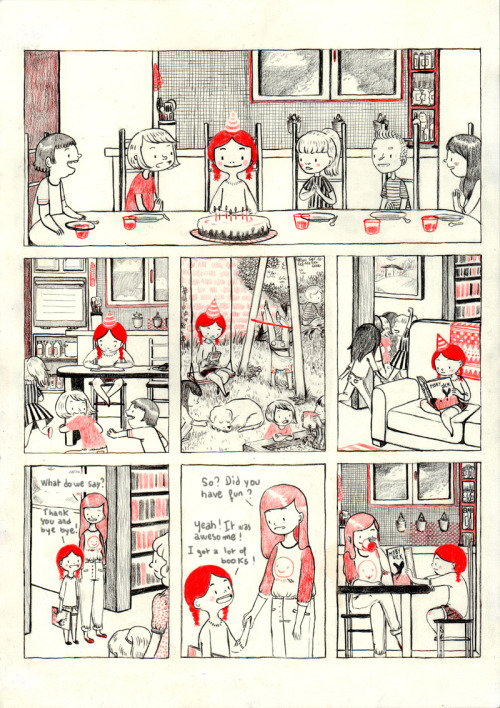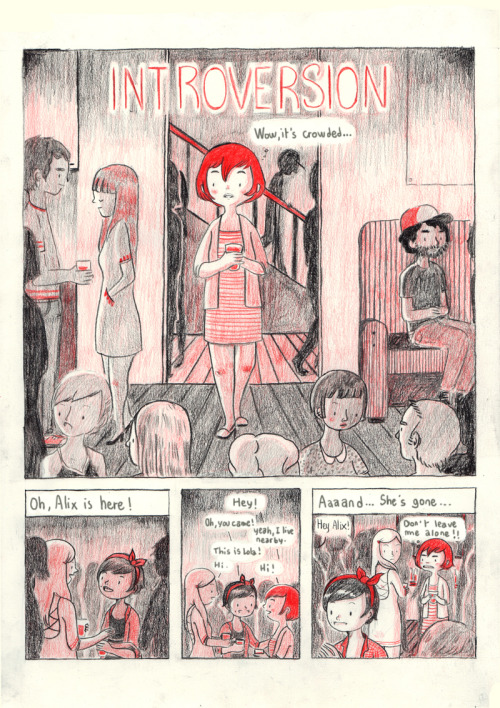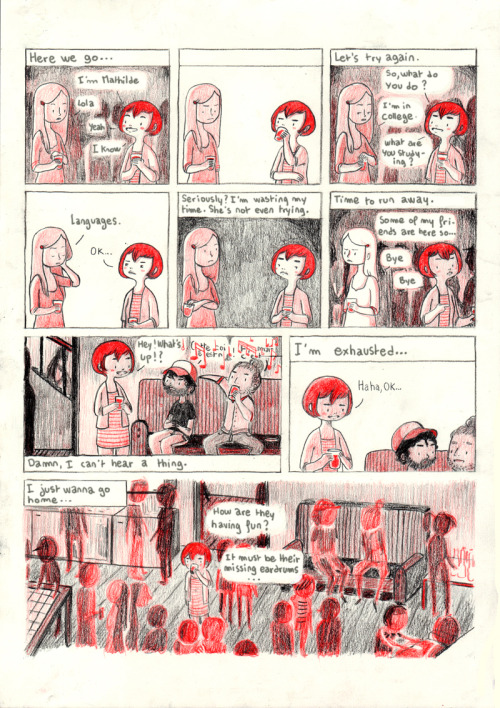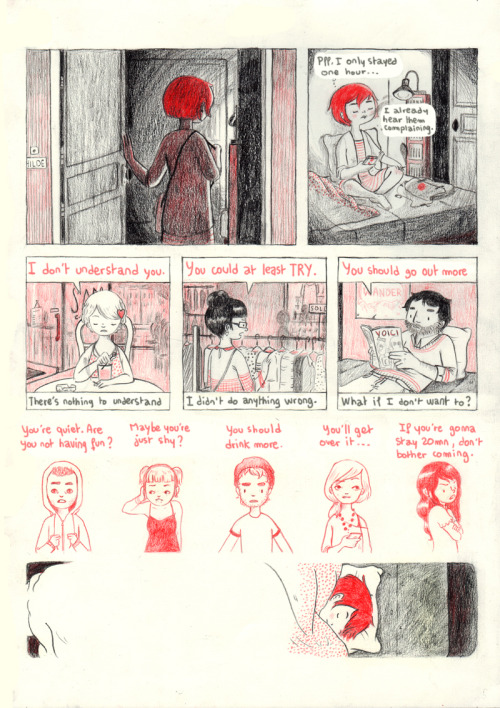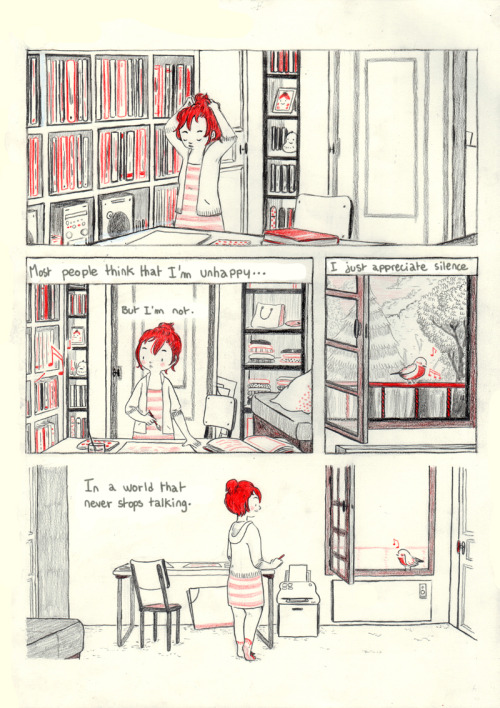#introversion
Can we cleanly define a personality construct? This essay explores how that might not be possible, and why.
Multiple determination
Lou Gehrig’s disease (which afflicted Stephen Hawking and was the subject of the ALS “ice bucket challenge”) is a disease of the motor neurons that control voluntary movement, resulting in total body paralysis, eventually affecting the facial and respiratory systems. The cause in unknown in most cases, and there is no cure. Part of the reason for this is that there is no one way in which ALS develops. ‘Degeneration of motor neurons’ is something we can understand at the relatively macroscopic level of cells and circuits, however there are innumerable ways in which genetic mutations or other afflictions can result in this degeneration. We simply don’t have a handle on the hundreds or thousands of cell processes that can go wrong. In addition, a single malfunction might not be enough to cause a case of ALS; it might take a dozen errors operating in concert.
There is no one-to-one correspondence between a biological process and the symptoms of Lou Gehrig’s disease. A similar problem is encountered in the field of psychiatry. For the last few decades, biologists have tried to track down the genes responsible for disorders such as schizophrenia (operating under the hypothesis that these disorders are fundamentally biochemical). However, what they have found is a massive number of genes linking to schizophrenia at a statistically significant level, but each contributing only a fraction of a percent towards the likelihood of psychosis. The resulting hypothesis is that schizophrenia is a polygenic disorder. Like ALS (and a host of other conditions), it takes many processes acting in concert to result in the disease.
(It might be noted that some social factors have been found to be far more predictive of schizophrenia than genetic factors—but that is a different discussion.)
Many processes, one result. How does this come about? Part of it, I think, is a trick of language. We group individual cases of ALS or schizophrenia as the same disorder, even though the biological factors at play may be totally different. Furthermore, the actual symptoms of the disorder may be mutually exclusive between two individuals (for example, a schizophrenic suffering primarily from flat affect, versus one suffering from hallucinations). Are these really the same disorder? By what criteria are we grouping them? One answer was provided by Ludwig Wittgenstein, who recognized that our cognitive-linguistic categories are not defined by a set of essential features, but by overlapping similarities. Perhaps there is no essential core of schizophrenia! With its many determinants and many manifestations, there could be many schizophrenias, which are nonetheless grouped under the same header. Our language does not represent an exact reality but an approximate one.
Personality
Whether you prefer to use the MBTI, the Big 5, or any number of other measures, the ideas of multiple determination and family resemblance categorization is readily applicable. Investigations of what these constructs are is a favourite pastime of mine and, I assume, of most of my readers. However, these often result in headaches and inter-theory conflict. Which ones are correct? What do we do about those that seem incompatible? I will focus on introversion and extraversion as an example. Here are a few of my favourite theories:
The 20th century psychologist Hans Eysenck saw introversion/extraversion as a measure of how outgoing and interactive a person is with others. He hypothesized that this difference was grounded in a difference in brain arousal. The correspondence is a bit counter-intuitive. An extravert would be characterised by a lower baseline level of cortical arousal, and as a result would seek stimulation to bring their level up to a desired amount. An introvert would be chronically over-aroused, and as a result would seek to minimize the external stimulation they encounter.
Elain Aaron pioneered a new personality category, called the “Highly Sensitive Person”. While technically separate from introversion, there is a high degree of overlap and analogy. Somewhat like Eysenck’s theory, HSPs are characterized by a heightened sensitivity to sensory stimuli, or their own cognition or emotions (or a combination of these). This results in a timid and careful approach to the outside world, as they are more likely to be overwhelmed by a too-intense stimulus.
The biological theory forwarded by many modern psychologists has to do with the dopamine reward system of the brain. Extraverts have been found to be more sensitive to activity in this circuit. In other words, they are more reward-motivated. This has the effect of pulling them more readily and eagerly into active engagement in the outside world. Specifically, this would correspond to the sub-trait of “Enthusiasm”.
Finally, Jung thought of introversion as an attitude that favoured the inner world of the psyche, while extraversion favoured the outer world of things. However, his exploration of the types involves a lot more nuance than this general formulation suggests. Psychological Types is packed with statements and observations that often seem only tenuously related to the central theme. However, this is in keeping with the thesis of my essay. What if there is no one introversion and no one extraversion? What if the only thing binding the many versions together is our categorical mode of thought, rather than any single biological reality?
This is perhaps a bit too strong. For example, it’s an empirical fact that the many facets of the Big 5’s extraversion are highly correlated. There must be some set of biological trends that support this. However, it’s also true that the same individual may be astronomically high in one facet and at the bottom of another for the same over-arching trait. We might conclude that there are some diffuse biological patterns out there, but they are clothed and warped by our cognitive-linguistic constructions.
What’s the take-away here? One may be a more relaxed attitude towards any attempts to find the essence of a psychological category. It may not exist, although a diffuse “family resemblance” pattern might. That is not to say that we shouldn’t scientifically validate our hypotheses about what this pattern is made up of–just that multiple versions might exist in parallel, and that a greater precision is possible when describing two people as introverts, or when observing two cases of schizophrenia. The structure of personality is perhaps less like a series of well-defined islands and more like an ocean: A macroscopic pattern of currents that, when observed more closely, are a heterogenous assemblage of fish and flotsam.
Some links:
ALS fact sheet https://www.ninds.nih.gov/Disorders/Patient-Caregiver-Education/Fact-Sheets/Amyotrophic-Lateral-Sclerosis-ALS-Fact-Sheet
Genetics of schizophrenia https://www.ncbi.nlm.nih.gov/pmc/articles/PMC5380793/
Family resemblance categories https://en.wikipedia.org/wiki/Family_resemblance
Introversion and extraversion https://en.wikipedia.org/wiki/Extraversion_and_introversion
“Highly sensitive person” https://en.wikipedia.org/wiki/Sensory_processing_sensitivity
Everything You Need To Know
“This work sprang originally from my need to define the ways in which my outlook differed from Freud’s and Adler’s. In attempting to answer this question, I came across the problem of types; for it is one’s psychological type which from the outset determines and limits a person’s judgement. My book, therefore, was an effort to deal with the relationship of the individual to the world, to people and things. It discussed the various aspects of consciousness, the various attitudes the conscious mind might take toward the world, and thus constitutes a psychology of consciousness regarded from what might be called a clinical angle.”
- C.G. Jung, Memories, Dreams, Reflections.
Not everybody approaches the world in the same way. In fact, most people seem to differ from each other greatly – sometimes it seems like a miracle that we can even get along at all! In attempting to explore this problem, Jung devised a system of types that – although not as scientifically rigorous as modern personality inventories like the Big 5 or the MMPI – was simple, elegant, and deep. This should be repeated: Jung’s typology, although rooted in practical experience, is intuitive and symbolic in nature. It is meant firstly as a therapeutic tool and not as a strictly scientific theory.
Jung’s typology is made up of six elements. The first are two attitudes: IntroversionandExtroversion. These represent the direction of interest of the psyche and the movement of its energy, whether inwards or outwards. The others are four functions: Thinking,Feeling,SensationandIntuition. These are modes of operation that, between the four of them, roughly encompass your conscious experience. The shorthand goes like this: Sensation tells us that something is there; Thinking tells us what it is; Feeling tells us if it is agreeable or not; Intuition tells us from where it came and to where it might go.
Introversion is an inwards-turning of energy. It’s an orientation that expresses the supremacy of subjective part of life; one’s inner thoughts, feelings, personal experiences, and the deep unconscious*. This does not mean that introverts are always introspective – instead, their relation to the outside world is coloured by their subjective view in such a way that their perceptions and judgements hinge more on their private inner reality than on the shared reality of the objective world. Because their energy moves away from the object (and towards the subject), they tend to be relatively reserved, inscrutable, and shy.
*Footnote to Introversion: The “deep unconscious” here refers to the Collective Unconscious, which is covered in another article. To summarise, the subject isn’t only made up of personal experiences or memories. Just as we all have an inherited body that is only superficially different between individuals, so do we have an inherited psyche that has evolved over millions of years. Introversion relies particularly heavily on inherited, instinctual images and patterns of thought. Pushed to the extreme, these manifest as a mythological or religious quality of thought, since myths are just the collective expression of these inner archetypes through stories.
Extroversion is an outwards-turning of energy. Here the objective part of life is the most important. Extroverts think and act in a way that corresponds more directly to external conditions. They aren’t necessarily perfectly adjusted – extroversion is no guarantee of good social skills, and furthermore, neglecting their inner life often results in grief for the extrovert. However, they are constantly impelled to relate to the outer world in some way, and in turn to be affected by it, whether that means they’re on good terms with everybody, or that they pick fights with everybody. In general they are relatively open, sociable, jovial, or at least friendly and approachable.
The four functions are made up of two pairs of opposites. Sensation and Intuition make up the first pair. These are the “irrational” orperceiving functions. Sensation takes in impressions of the material world via the five senses, which often results in a pragmatic, grounded, or aesthetically-minded personality. Intuition is a subconscious or subliminal perception that, roughly speaking, presents the user with a whole where only a part is objectively visible. This often results in a speculative, flighty, or imaginative personality. Thinking and Feeling are the “rational” or judgingfunctions. Thinking takes a detached, mechanistic view of problems, and seeks to put the world in conceptual or at least logical terms. Feeling recognises and imparts subjective value onto things, deciding whether or not they are agreeable and good.
However, these functions are never developed and used in an individual to the same extent. As a rule, one becomes the person’s primary approach to life – thedominantfunction. Its incompatible opposite is partially repressed as a result. This becomes theinferiorfunction. The two other functions are in a middle-state of differentiation, and therefore are less harshly polarised. One is usually theauxiliaryfunction, which supports and counterbalances the dominant – a functional sidekick. This is not a hard rule, though: both could be auxiliaries, or both could be undifferentiated inferior functions. However, the most common arrangement consists of two conscious functions, the dominant and main auxiliary, and two unconscious inferior functions.
==============================================================

Fig. 1 - A Thinking dominant, Feeling inferior arrangement. The two middle functions, Sensation and Intuition, are halfway between consciousness and unconsciousness. They can be developed auxiliaries or underdeveloped inferiors.
==============================================================
These dominant-auxiliary combinations begin to paint familiar pictures – the practical problem-solver with Thinking and Sensation, the esoteric creative artist with Feeling and Intuition, etc. The inferior function also tends to be recognisable. We all know people who have terrible difficulties with Feeling, or for whom material reality is always a stumbling block thanks to inferior Sensation.
Finally, in any given function type, a certain attitude will also dominate. This attitude does not exist on its own, but applies to the dominant function, so that the Thinking of a Thinking type might actually be Introverted or Extroverted. The opposite attitude, however, is repressed and combines with the inferior function. The middle functions are again in a more mercurial middle state; they often have the capacity to shift either way. This results in a distinct set of types, which are described in my Jung Abridged series.
To recap: Two attitudes, Introversion and Extroversion. Four functions: two perceiving, that is Sensation and Intuition, and two judging, that is Thinking and Feeling. One is dominant and conscious; its opposite is inferior and unconscious. The other two functions can be either conscious auxiliaries or unconscious inferiors. The dominant function has a characteristic attitude; the inferior takes the opposite attitude. Those are the basics – from here you can check out any of my other articles, which deal with many aspects of this schematic in greater depth. Enjoy!
This is to all the introverts out there. To all those who have been hurt. To all the broken. If you’ve ever been in a shell.
This is for you.
Do other INFJ’s have trouble communicating their thoughts and feelings?
Yes.
INFJ have trouble communicating their thoughts and feelings.
It is one of the banes of an INFJ’s existence.
Romantically, we won’t articulate how we feel about someone until we are 1000% sure they feel the same way or that they have told us first.
Sometimes we feel that when a person knows us well, they should always know what they mean, that isn’t always true. If we don’t say anything, they won’t know.
We let people take advantage of us and sacrifice our boundaries when we love and care for someone until we stand up for ourselves.
We use music to speak for us.
We write better than we speak, so if you want to know how we truly feel, ask us to write you a letter.
Music can say things that we can’t find the words to say.
Many of us do not like rejection, especially in dating, so we sit on the sidelines more often than not unless we know the person is interested.
We let things that bother us slide when we care for you
Many people don’t value our opinion, and if we discover it, we find other ways to show others that we have a lot to bring to the table
An INFJ has to trust you to be comfortable and vulnerable
Our body language and facial expressions can say more than our words may ever.
Be patient and help INFJ’s be comfortable around you if you want to know and understand who they are at their core, loving individuals.
We are just so afraid of prior hurts occurring again that we become guarded
How emotional are INFJs?
Their hearts are so sensitive and they are so overwhelmed with feelings to the point where their hearts extend 300 meters around them like a radar range. In this range around the INFJs, their hearts will detect the littlest feelings. When they detect a surge of sadness or anything negative, they won’t be ok until they come to the rescue! They’re like firefighters who fight negative feelings and don’t expect a thanks from others, but it’s appreciated.
They are amazing people! They listen and listen and listen because they want to give you a chance to speak. They internalize a lot of things and don’t like to share things or ideas before they perfect them! They don’t like others to judge them.
They are amazing beings. They’re so mature no matter what their age is. They’re so wise and understanding to the point that they seem like they’ve lived l this life a hundred times before.
What are some truths about INFJs?
1. INFJs love helping people.
2. They soak up other people’s energy.
3. It takes work to get to know them.
4. They hate small talk.
5. They are introverts but people will guess them to be extroverts because of their extroverted feelings.
6. They can often mimic other personality types.
7. Don’t trifle with them. You don’t want to be on their bad side.
8. They are better at writing than they are at verbal communication.
9. They may not show you their deepest self for years.
10. Lastly, never lie to an INFJ. They will know and it will matter!
INFJ Traits, Social, Weirdness
Naturally inclined to help others
Natural diplomats because of the ability to see both sides
Egalitarianism and karma are very attractive ideas to INFJs
INFJs find it easy to make connections with others
INFJs need time alone to decompress and recharge
We can’t stop reading people even if we try
Champions for the oppressed and downtrodden
Often neglects to take care of themselves – putting others first
Prone to exhaustion due to the passion of their convictions
Gentle, caring, complex and highly intuitive
Self-Expression comes easier on paper than face to face
Artistic and creative
Struggle to adequately express ourselves
Has a deep need to help people “sort out their stuff”
INFJs are inclined to create order and practical systems in their outer world
INFJs operate within themselves on an intuitive basis
Knows things intuitively without knowing how
INFJs are easily affected by other people’s emotions
Have uncanny insight into people and situations
Prefer deep conversations to surface topics
Are protective of their inner selves
Geared to improve themselves through personal growth
Are rarely at complete peace with themselves
Has “little use” for social norms and routines
Always improving themselves and their surroundings
Always testing people to see if we can talk about things that really matter (usually can’t)
Can hold grudges for long periods of time.
We are information addicts, INFJs are the most well-read of all the personality types
Love’s variety in our romantic relationships
We rebel, but also want to be accepted
Losing/ Ending relationships is extremely painful
The whole INFJ existence is bound up in hiding and concealing our true nature
Have very high expectations of themselves
Tendency to take care of others needs while neglecting our own
Most likely of all types to cope with stress by seeing a therapist
Is a naturally nurturing, patient, devoted and protective
Hyper-aware of their surroundings
Are the least able of all the personality types to be in a long-term relationship
If the person we are talking to is too active, they will take a passive role, if the person we are talking to is too passive, we will take an active role.
Mysterious nature
INFJs know we are special and we revel in our rarity
Highly reserved, quiet, thoughtful, and almost above all else – introspective.
They make loving parents and usually have strong bonds with their children
Prefers careers where they can be creative and somewhat independent
Are very hard on themselves
It’s common for INFJs to intuitively assess their vicinity, and modify their behavior accordingly
To get an INFJ to open up, you must have some degree of depth about you and show that your view of things are not that dissimilar from their own
Always looking for something new, rarely satisfied with the mundane or routine
Not good at dealing with minutia or very detailed tasks in careers
Are highly cerebral and reflective
Wants to be alone about 75% of the time
Very sexual in private, but respectful and dignified in public
INFJs are quiet around you if; they don’t trust you, or they are completely comfortable with you.
Have a natural affinity for art, and may excel in the sciences, using their intuition
Are complex characters with a range of talents and abilities
Has a limited amount of social energy
INFJs are often mistaken for extroverts
Would rather spend time with our creations than with people
Keeps the majority of people in their lives at arm’s length
Because of the high demands of people close to them INFJs frequently withdraw into themselves shutting out the world for a few days
Loyal to those they trust
Wonders why most people are idiots
Does not take kindly to being ignored or interrupted
Natural activists for causes but not for political gain or power
Suffers from emotional overload because of their inherent nature to be “givers”
Has the clear insights into the motivations of others, for good and for evil
Highly empathic – Can feel and sense what others are feeling
Are natural counselors and healers
Hates liars
INFJs are the Archetypal “Loner” by choice
Are moved to champion causes and activities that serve the greater good
Has a strong sense of personal integrity
Natural healers
Are private and selective about sharing intimate thoughts and feelings
INFJs are far less serious inwardly than they appear outwardly
We like to have things orderly and systematic
Use both sides of the brain equally
How do I spot an INTJ/INFJ?
1. “Death-stare”. The phenomenon has been widely described. When they look at you, you feel as if they were inside your head.
2. They are organized, have their shit together (or at least try to make such impression). Usually dress well. Prefer plain clothing and simple haircuts.
3. In group settings they are the one that doesn’t say much and looks bored/confused/sad.
4. They have some kind of academic interest. Typical intellectuals.
5. Wry, dark sense of humour. Often use sarcasm, especially when talking about “big things”.
6. You will get a“prophet-vibe” from them. Like they were a wandering lunatic, living more inside their heads than in the present moment (although they share this trait with INFJs, but those have more of a “dreamy”, intimate look in their eyes, while an INTJ’s eyes are more analyzing).
7. Their FB profile has little to no activity, but may have an unusual profile/background pic.
8. They read while commuting.
9. Might come off as arrogant, cold. Accidentally say harsh things without even realizing it. Might be extremely judgemental (especially the immature ones).
10. Are very seclusive and private, you may know them for years and have no effin clue who they are and what they do.
11. They will ask open ended questions and will try to get to know who you are inside.
12. They make long pauses while speaking and you can almost feel that they are gathering thoughts. This might change if they open up and feel at ease with you.
What are each MBTI Type’s favourite conversation topics?
INTJ: Nietzche, the future
INTP: Science, what will they create
ENTJ: Their dreams, their idols, politics
ENTP: memes, penny-for-your-thoughts conversations
INFJ: morals, what they want to achieve
INFP: music, their wishes
ENFJ: politics, friendship, their dreams
ENFP: you will not get far before they change the topic to somet- OOH, A BUTTERFLY!!
ISTJ: politics, community, career
ISFJ: service, community
ESTJ: politics, career, bashing lefties
ESFJ: gossip, their kids, wine, cookies
ISTP: any tool or vehicle that they have
ISFP: art, music
ESTP: what they do for fun, parties, music
ESFP: dancing, relationships, parties, music
What things exhaust INFJs?
Parties-we don’t like crowded social engagements.
Sacrificing boundaries-We will do anything for someone we love, but we also have to put ourselves first.
Liars-We can sense a lie from a mile away
People-Negative people who drain our energy and find a problem with every solution
Small talk-We hate small talk, we want to get to know you, everything about you.
Being overstimulated-We are very sensitive to light and noise.
Not recharging-If we aren’t given time to ourselves, that can drain us quickly.
Being put on the spot-We like knowing things and when they will happen ahead of time.
What kind of first impression do INFJs usually make on others?
As an INFJ I can only speak to the feedback I have received from others, but when I reflect on their comments, I do understand how they arrived at their opinions. Some have said that from a distance I seem aloof, disinterested or intimidating, but when personal conversations begin they feel safe with me and open up easily, much to their surprise (I, of course, am not surprised at all). More intuitive people sense my ability to perceive their unspoken feelings and agendas, and respond differently based on their own emotional maturity. It can feel uncomfortable or threatening to some; mysterious to others; gratifying to those very much in need of acceptance; or genuine and altruistic to the few who are at peace with themselves. It depends on the others’ needs. I feel I am congruent personally and publicly, but because I have a God given ability to perceive the needs of others, and I genuinely care, I respond accordingly. Therefore, a group survey of opinions would reflect the diversity.
There are times, of course, when I am tired, overwhelmed with the negative dynamics of a situation or just lost in my own inner world, that I’m sure I really am aloof or disinterested. In general, however, I do sincerely care and want to engage in whatever way I can be of help with the emotional well being of others.
What is a telltale sign you are dealing with an INFJ?
Deep conversations, lighthearted personality, genuine concern, caring about and wanting to talk all about you, a little reserved while they try and figure you out.
Why can it be so hard for an INFJ to bond with another person?
The INFJs I know tend to reach a general conclusion about people, based on gut feel, within minutes of meeting them. They get put into broad buckets of, someone who is a false / bad / selfish person, people they have nothing in common with (vast majority) or sympathetic / nice people they can get along with.
If you get put in the nice people category bonding with and INFJ is pretty easy.
If you get put in the bad person category it is almost impossible as the INFJ will actively avoid you and wants nothing to do with you.
If you go into the middle category then the INFJ will tend to only have superficial contact with you. From a lack of decent interaction, and once an INFJ has categorised you, you have an unbelievable uphill struggle to form a bond with an INFJ. I have seen it done, especially where the INFJ has another reason they have to be in contact with the person, for example co-workers or their children are best friends - but it is not easy.
INFJs: what advice can you give a younger INFJ?
My psychologist identified me as leaning INFJ about 20 years ago but I didn’t give it much thought then. I’ve been a “woke” INFJ for ten years as a result of rediscovering the MBTI concept during a difficult time. I wish I hadn’t waited so long as the insights I’ve gained about my own personality and those close to me would have saved a lot of heartache and anguish
Here’s what I’ve learned about myself through the years that I’m reasonably sure apply to many other INFJs too:
You have unique insights. They are real. The unusual internal wiring that makes you an INFJ lets you connect the dots easier. And you see more dots. Some people don’t see any dots or recognize patterns and are more than happy to point out the “error” of your observations. So be it. You’re job is to figure out what “feels” right and should be pursued, what can be put on the back burner awaiting more information, and what can be dumped because after thinking about it you realize your conclusions were probably wrong. It happens.
You will be lonely. INFJs can be unconventional because we act on information most others don’t have. We usually have a broad range of knowledge and can come across as “know-it-alls.” We can sometimes alarm people with our passion. We can start feeling down because we don’t understand how people can be so cruel to one another. Or so stupid. Our faith in humanity can swing wildly from hour to hour. We can do the crowd thing for awhile and need to leave. We usually hate small talk on the phone and are often the worst party planners in the world.
We drive ourselves and others mad to “get things right” and to give a damn about something besides the most trivial things in life. We are usually disappointed—in others and ourselves. It’s not that people don’t like being around us, it’s that we usually think people don’t WANT to be around us. So we hunker down and keep to ourselves.
That’s what can make relationships difficult sometimes. You will need to tap into the best part of being an INFJ—helping people—to keep you from being lonely. I volunteer at a homeless center. I’m active in the US Coast Guard Auxiliary. I write answers on Quora!
You will be able to do a lot of stuff. Some of it well. Most people will be surprised. Most INFJs I know are curious, versatile people. For example, I’ve written two novels, one has been self-published. I play jazz piano and can also play the tuba. I’m conversational in Spanish and know some Swedish. I can hold up my end of a conversation ranging from cosmology to dog grooming. I can talk Southern Country Gospel with a homeless man and discuss the latest power adders for high performance race cars with the editor of a national racing magazine. I did both last week. I sail the Great Lakes in my own boat. I like to cook. I have restored or built six houses. I can plumb bathrooms from scratch, do basic electrical work and restore old wood moulding. I have a four-year certificate in theology. I can paint and draw.
At this point you probably think I’m quite the braggart. That’s not why I’m listing these abilities. The reason is that I can do NONE of these things proficiently. Except sailing–I’m a very good sailor! I suspect that most INFJs who have been around for several decades can make a similar list. Our curiosity and drive to know how something works can lead us to some amazing discoveries and bring us into contact with some fascinating people. Freeing yourself to explore and to try new things without having the burden of having to perform in public or to even be terribly proficient at any of them can lead us to a very interesting life!
You will second guess yourself. Constantly. You are your own worst critic. If you’ve ever had second thoughts about how you came across after submitting a report or talking to someone about something important, remember:
Your second guesses are usually wrong. Trust your intuition!
You may struggle in relationships. INFJs are not easy people to be around sometimes. We can be quirky, sometimes anti-social and have a tendency to tell folks how to build a clock when they ask for the time. We can fret constantly about the state of humanity, when our partner just wants to have a hamburger and talk about movies. The saving grace is that we love hard! When we’ve found someone we can be ourselves with, someone who accepts us, if not understands us, we’re there for the long-haul. The people in your life who get that will adore you!
Finally, strive to know yourself better. Don’t take yourself too seriously. Don’t forget to have fun. Don’t worry so much about what other people may be thinking about you—chances are they aren’t thinking anything! And above all, be kind to yourself!
INFJ Strengths
•Creative – Combining a vivid imagination with a strong sense of compassion, INFJs use their creativity to resolve not technical challenges, but human ones. People with the INFJ personality type enjoy finding the perfect solution for someone they care about, and this strength makes them excellent counsellors and advisors.
•Insightful – Seeing through dishonesty and disingenuous motives, INFJs step past manipulation and sales tactics and into a more honest discussion. INFJs see how people and events are connected, and are able to use that insight to get to the heart of the matter.
•Inspiring and Convincing – Speaking in human terms, not technical, INFJs have a fluid, inspirational writing style that appeals to the inner idealist in their audience. INFJs can even be astonishingly good orators, speaking with warmth and passion, if they are proud of what they are speaking for.
•Decisive – Their creativity, insight and inspiration are able to have a real impact on the world, as INFJs are able to follow through on their ideas with conviction, willpower, and the planning necessary to see complex projects through to the end. INFJs don’t just see the way things ought to be, they act on those insights.
•Determined and Passionate – When INFJs come to believe that something is important, they pursue that goal with a conviction and energy that can catch even their friends and loved ones off guard. INFJs will rock the boat if they have to, something not everyone likes to see, but their passion for their chosen cause is an inseparable part of their personality.
•Altruistic – These strengths are used for good. INFJs have strong beliefs and take the actions that they do not because they are trying to advance themselves, but because they are trying to advance an idea that they truly believe will make the world a better place.
INFJ Weaknesses
•Sensitive – When someone challenges or criticizes INFJs’ principles or values, they are likely to receive an alarmingly strong response. People with the INFJ personality type are highly vulnerable to criticism and conflict, and questioning their motives is the quickest way to their bad side.
•Extremely Private – INFJs tend to present themselves as the culmination of an idea. This is partly because they believe in this idea, but also because INFJs are extremely private when it comes to their personal lives, using this image to keep themselves from having to truly open up, even to close friends. Trusting a new friend can be even more challenging for INFJs.
•Perfectionistic – INFJs are all but defined by their pursuit of ideals. While this is a wonderful quality in many ways, an ideal situation is not always possible – in politics, in business, in romance – and INFJs too often drop or ignore healthy and productive situations and relationships, always believing there might be a better option down the road.
•Always Need to Have a Cause – INFJs get so caught up in the passion of their pursuits that any of the cumbersome administrative or maintenance work that comes between them and the ideal they see on the horizon is deeply unwelcome. INFJs like to know that they are taking concrete steps towards their goals, and if routine tasks feel like they are getting in the way, or worse yet, there is no goal at all, they will feel restless and disappointed.
•Can Burn Out Easily – Their passion, poor patience for routine maintenance, tendency to present themselves as an ideal, and extreme privacy tend to leave INFJs with few options for letting off steam. People with this personality type are likely to exhaust themselves in short order if they don’t find a way to balance their ideals with the realities of day-to-day living.
INFJ vs INFP
Similarities:
Both are private. Both are idealists. Both can be perfectionists. Both are insightful, analytical, logical, and meticulous. And both are intuitives, preferring the abstract over black and white.
The biggest difference?
INFP is highly in tune with their own feelings
INFJ is usually oblivious to theirs
INFP’s dominant function is Fi (their own feelings), but INFJ doesn’t even have Fi in their stack. (Same for ISFJ.) Instead, their “F” is extroverted (Fe) — which is other people.
INFP has ever-expanding ideas …inspired by feelings
INFJ has ever-narrowing “insights” … about people
it’s the INFP who speaks fluent “ideas and dreams”
INFP is inspiration, with insight
INFJ is insight, with inspiration
At their worst:
INFP replays the past to relive emotions, and is sensitive (not critical)
INFJ gets lost in “white noise” / “nothingness,” and is critical (not sensitive)
When desperate:
INFP obliterates their creativity with convention (ending up soul-crushed)
INFJ obliterates their thinking with hedonistic indulgences (ending up ill)
Their insecurity / fear (or: the biggest insult):
INFP — “you’re not special,” “you’re too sensitive/naïve/spaced out”
INFJ — “your insights aren’t meaningful,” or “your life is meaningless”
INFP feels pride from being unique and being seen that way
INFJ feels pain from not being understood or connecting with others
INFJ biggest value isn’t “authenticity” but rather “universal meaning.” They are merely a vessel, and their F is focused on others, not self (their thoughts and insights — not feelings — are what’s focused internally, and sometimes INFJs are utterly blind to their own emotions.)
As Heidi Priebe wrote,
“Because INFPs tend to be highly creative and individualistic, most of them have never met another person quite like themselves (including other INFPs). For this reason, they find it fitting that their type is 1% of the population — they think this explains their individuality, when in reality it is their introverted feeling that sets them apart.”
Deepest desire:
INFJs want universal insight on other people (INFP doesn’t reallycare)
INFP wants unique expression of self (INFJ doesn’t really care)
Infj
Sensitive, empathic, and insightful, you care deeply about people, wanting to accommodate them on the one hand, and having strong visions that you desperately want to turn into reality on the other. Often preoccupied with mulling over your personal thoughts in your own head, others are likely to describe you as tolerant, courteous, and appreciative, but also a bit remote and dreamy. Thoughtful and caring, you have a well-developed facility for putting yourself in another person’s place and an instinctive understanding of how people work. Though you tend to spend considerable time fantasizing about how society could be improved, you typically refrain from arguing passionately in favor of your solutions. Instead, you prefer to influence others by gently letting them know how their individual contributions would be invaluable in the greater scheme of things.



